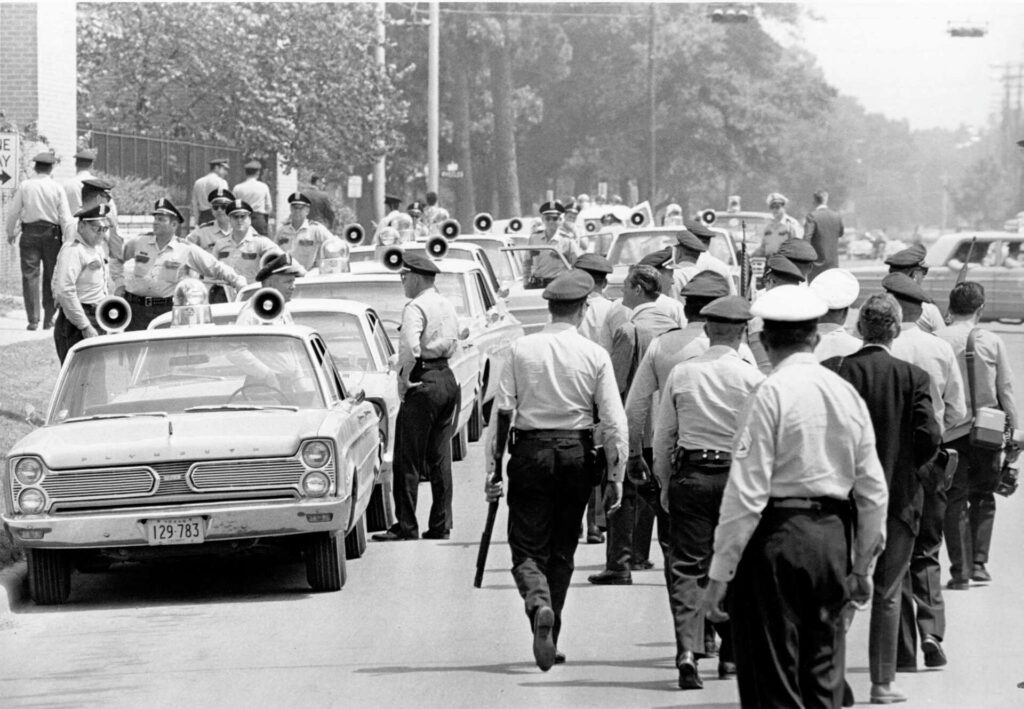Introduction: A City Shaped by Movements
Houston, though often associated with business and industry, holds a significant place in the history of U.S. political and social movements. Over decades, the city’s streets and public spaces have witnessed key moments of activism, from the civil rights era to environmental protests and labor strikes. These movements reflect the community’s resilience and commitment to justice, equality, and change.
The Civil Rights Era: Fighting for Racial Equality
The civil rights movement profoundly shaped Houston’s history. In the 1960s, activists worked tirelessly to combat segregation in public facilities, schools, and workplaces. Notable events include the sit-ins at local lunch counters and protests against segregated transportation systems.
- Texas Southern University Students’ Role: The historically Black college became a hub for activism. Students staged sit-ins and protests, demanding the integration of downtown businesses.
- 1967 TSU Riot: A confrontation with police following protests resulted in violent clashes, highlighting the tensions between law enforcement and the Black community.

These efforts led to the gradual desegregation of public spaces and opened doors for political representation among African Americans in the city.
Labor Movements: Advocating for Workers’ Rights
Labor movements also played a key role in shaping Houston’s social landscape. The city’s rapid industrial growth created a demand for workers, but it also led to the exploitation of labor.
- 1940s Dockworkers’ Strikes: Workers along the Houston Ship Channel organized strikes to demand better wages and working conditions. These strikes disrupted shipping operations, drawing national attention to labor rights in Texas.
- Healthcare Workers’ Protests: More recently, nurses and healthcare workers have organized demonstrations for better working conditions and fair pay, especially during the COVID-19 pandemic.
Environmental Protests: Protecting the Bayous and Air Quality
With its rapid urbanization and industrial activity, Houston has long been a battleground for environmental activism. Activists have fought to protect the city’s natural resources, including its bayous and air quality.
- 1980s Toxic Waste Protests: Community activists, particularly in marginalized neighborhoods, protested against the siting of hazardous waste facilities.
- Ongoing Climate Advocacy: Today, organizations continue to rally for climate action, clean energy policies, and flood mitigation efforts to protect vulnerable communities from environmental hazards.
LGBTQ+ Activism: The Fight for Equality
Houston’s LGBTQ+ community has also played a pivotal role in the city’s protest history.
- The 1977 Anita Bryant Protest: When the anti-gay activist visited Houston, thousands gathered in protest, marking one of the largest LGBTQ+ demonstrations in the city’s history.
- 2015 Equal Rights Ordinance (HERO) Debate: The fight over the ordinance, which aimed to protect residents from discrimination, sparked citywide protests and debates. Although the ordinance was repealed, it raised awareness of LGBTQ+ rights in Houston.
Recent Movements: Black Lives Matter and Beyond
In recent years, the Black Lives Matter (BLM) movement has reignited discussions around racial inequality and police brutality. Houston has been a focal point for BLM protests, especially after the death of George Floyd, who was raised in the city’s Third Ward. Thousands marched through downtown Houston, demanding justice and police reform.
A Legacy of Activism
The history of protests in Houston is a testament to the city’s spirit of activism. From the civil rights movement to environmental advocacy, labor strikes, and LGBTQ+ demonstrations, Houston’s residents have continually fought for a more just and equitable society. This legacy of protest remains an essential part of the city’s identity, shaping the future for generations to come.